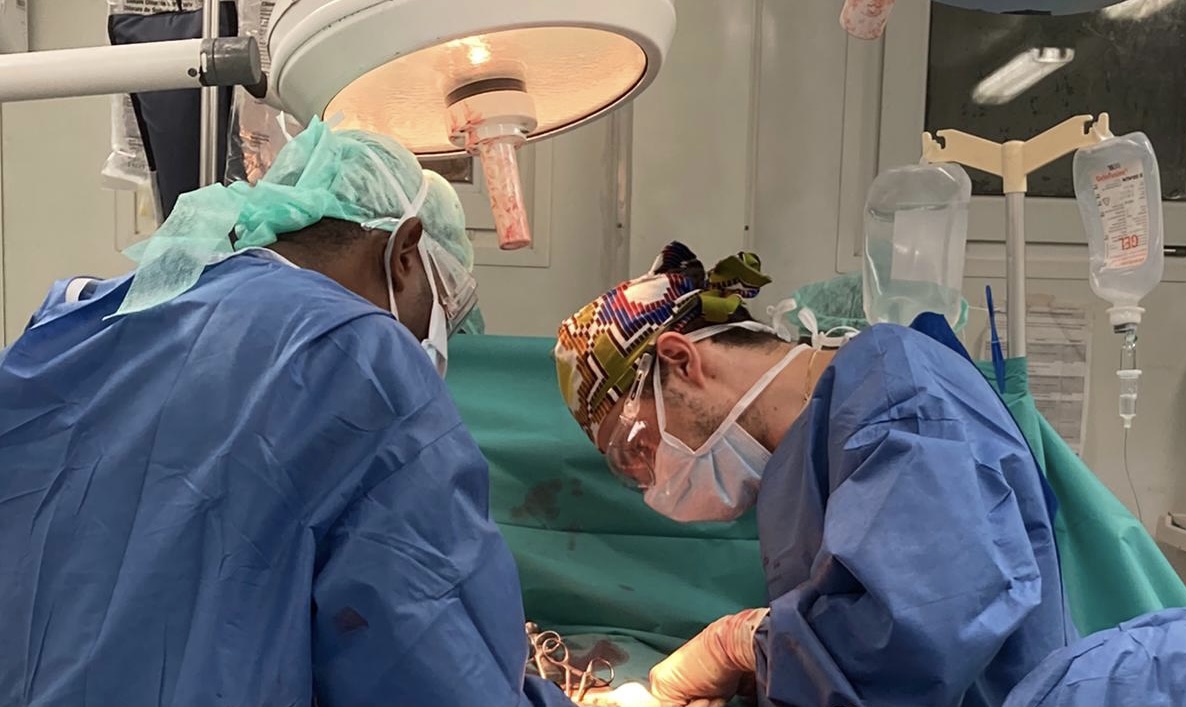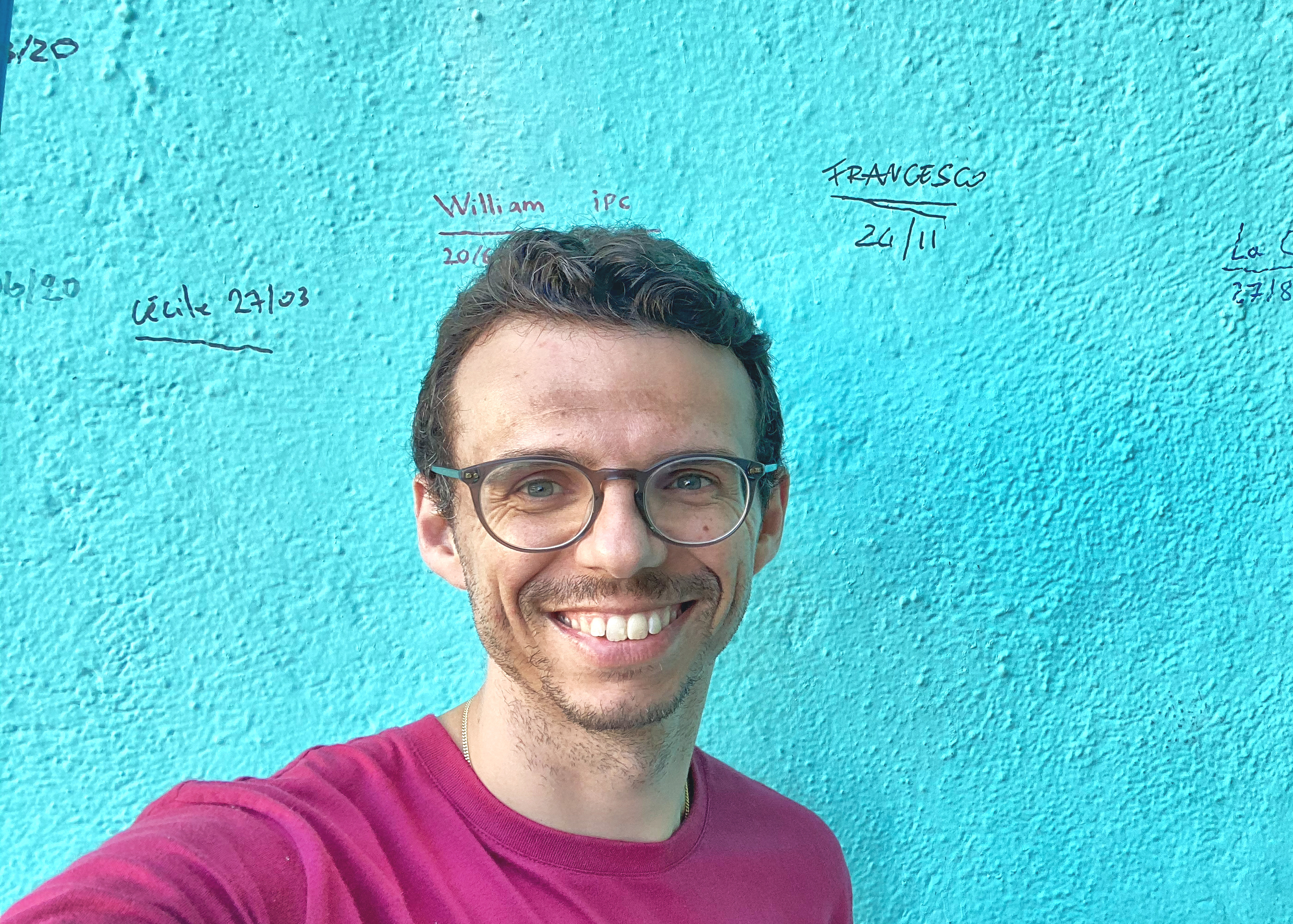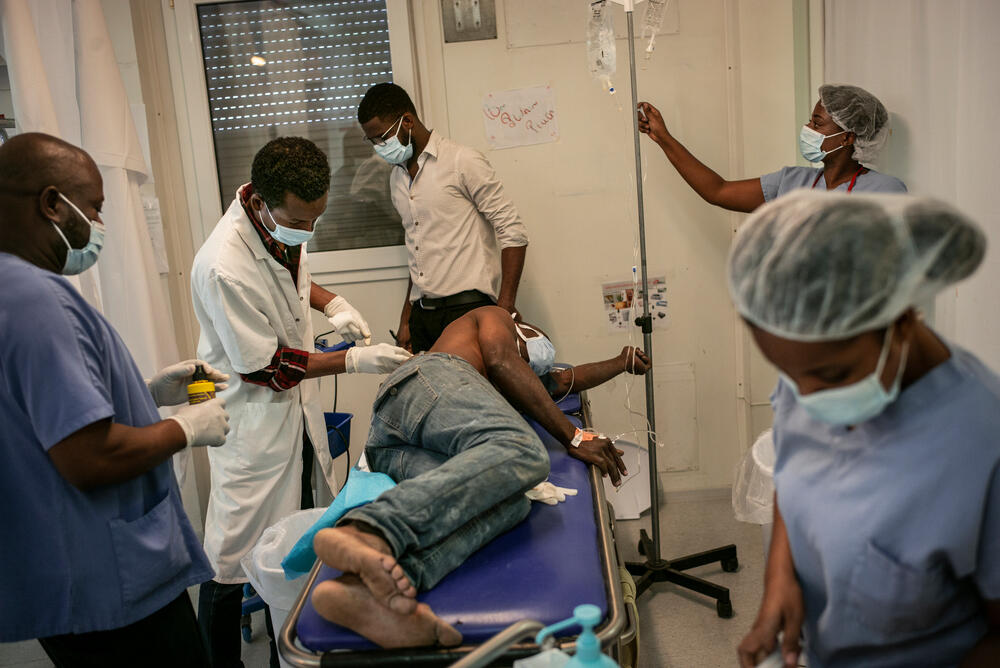Breaking down the wall: Trauma surgery in Haiti
Surgeon Francesco Virdis shares his humbling and human experience after an intense assignment at MSF's trauma hospital in Tabarre, Haiti
Haiti was not my first assignment with MSF and, like the previous ones, it will take its unique place deep inside me. Because every assignment has its own history, its own path, its difficulties, its affections, its victories and its defeats.
But Haiti was the posting where, for the first time, my human frailty prevailed over being just a surgeon: rational and detached as much as needed to not lose focus, especially in the difficult environments such as those where MSF operates.
And when the wall breaks down, putting it back up again is never easy. Because, until it has been rebuilt properly, even a small gust of wind will be enough to knock it down again.
Emmanuel
Emmanuel is 19 years old. He arrives at the MSF trauma centre in Tabarre on Friday night. Here, the weekends are always intense and often we deal with three, even four patients with gunshot wounds arriving at the same time.
Dr. Laelle phones me, telling me the patient was shot in the chest and the abdomen. The chest drain placed by the team in the shock room has drained 1800 ml of fresh blood. As a general rule, surgery is needed after 1500 ml. The ultrasound also shows fluid around his heart; in chest trauma this sounds like big trouble.
There was nothing else we could have done. No one is at fault except whoever pulled the trigger...
Emmanuel is in shock and he has already been transferred to the operating theatre. When I arrive, the team is ready. We open his chest first, his lung is severely injured. We manage to stop the bleeding.
We examine Emmanuel’s heart, but it has not been injured, giving us a small moment of relief and the time to quickly reassess the situation. However, blood continues to come up through the diaphragm, clearly from an abdominal injury.
We open Emmanuel’s abdomen, his liver is partially destroyed by the bullet. We do a procedure called “damage control” – wrapping the liver in compresses hoping they will stop the bleeding – and we temporarily close to allow the anaesthetic team to continue to infuse blood and drugs to stabilise the patient.
It is 1am and the surgery itself technically went as it was supposed to, achieving, in due time, the goal of stopping the bleeding.
Emmanuel will die at 9am, at the age of 19.
Everything we could
He lost almost four litres of blood between his chest and abdomen and our available resources could not have sustained him more than they did.
We did everything we could, I say to myself. And that's it: there was nothing else we could have done. No one is at fault except whoever pulled the trigger.
Emmanuel’s mum, sister and cousin arrive at the emergency room. They don't know anything. I explain what happened.
We are so sorry, unfortunately, there was nothing more we could do.
The desperation of the mother is the final blow to that wall inside me that had probably already started to crumble a few weeks earlier.
The surgeon in my head suddenly switches to the man, to the father of a newborn little girl who is safe at home in London.

Help us prepare for the next emergency
On the other side
I try to imagine what that woman is going through, after raising up her son for 19 years, living every milestone of his life, walking with him along his path and now, in one night, he is no longer there.
I can’t even imagine how much pain something like that can cause, but now I know what it means to be a parent and I face the terror of being on the other side.
Nana, the doctor in charge of the whole medical staff, is by my side. She feels my discomfort, and tells me that she will take care of it, to go ahead.
I have to go to the intensive care unit to see the other patients who’ve had surgery. We have to be ready to react to any complications, I say to myself. It’s our job.
But I feel like there is no way out this time. Next to the intensive care unit there is a small storage room. I slip inside, and let my wall break down for the first time.
I still don’t know if I feel ashamed about it or if I should feel ashamed that it didn’t happen way before, when similar situations happened in the past.
Desperation
Here in Haiti, there have been and there will be so many others like Emmanuel. During my time in Tabarre he is the fourth patient of that age we’ve lost to gunshot wounds.
The country is in a situation of incredible socio-political and economic instability, poverty and insecurity.
In my short time here, I have had numerous conversations about the violence people face here, and the fear caused by gangs. People have explained that in Tabarre, on every corner of the street, you can be kidnapped, robbed or murdered.
My colleagues talked to me about the desperation people face here, and the sense that there is no way out of it except by seeking a better life in the United States.
There is a real need to raise and spread awareness of what people here are living through.
Remembering her smile as she left the hospital brings up my human frailty once more, but this time to make room for happiness and pride
Making room
This assignment has also brought so much joy and satisfaction for all the severely wounded who made it, for all the patients who thanked us when they left the hospital.
When the sadness flairs up, I look at the photo taken with Delphine the day before she was discharged.
Delphine is 16 years old and a bullet pierced her aorta – the main artery that carries blood from your heart. To remove that bullet without causing uncontrolled bleeding, Delphine needed major surgery.
But this time we saved her.
Remembering her smile as she left the hospital brings up my human frailty once more, but this time to make room for happiness and pride.
Yet, here in Haiti, it is only a matter of a few more days before the next drama.
Names have been changed. Top image shows a surgery team in Tabarre but is not the patient described in this post.


